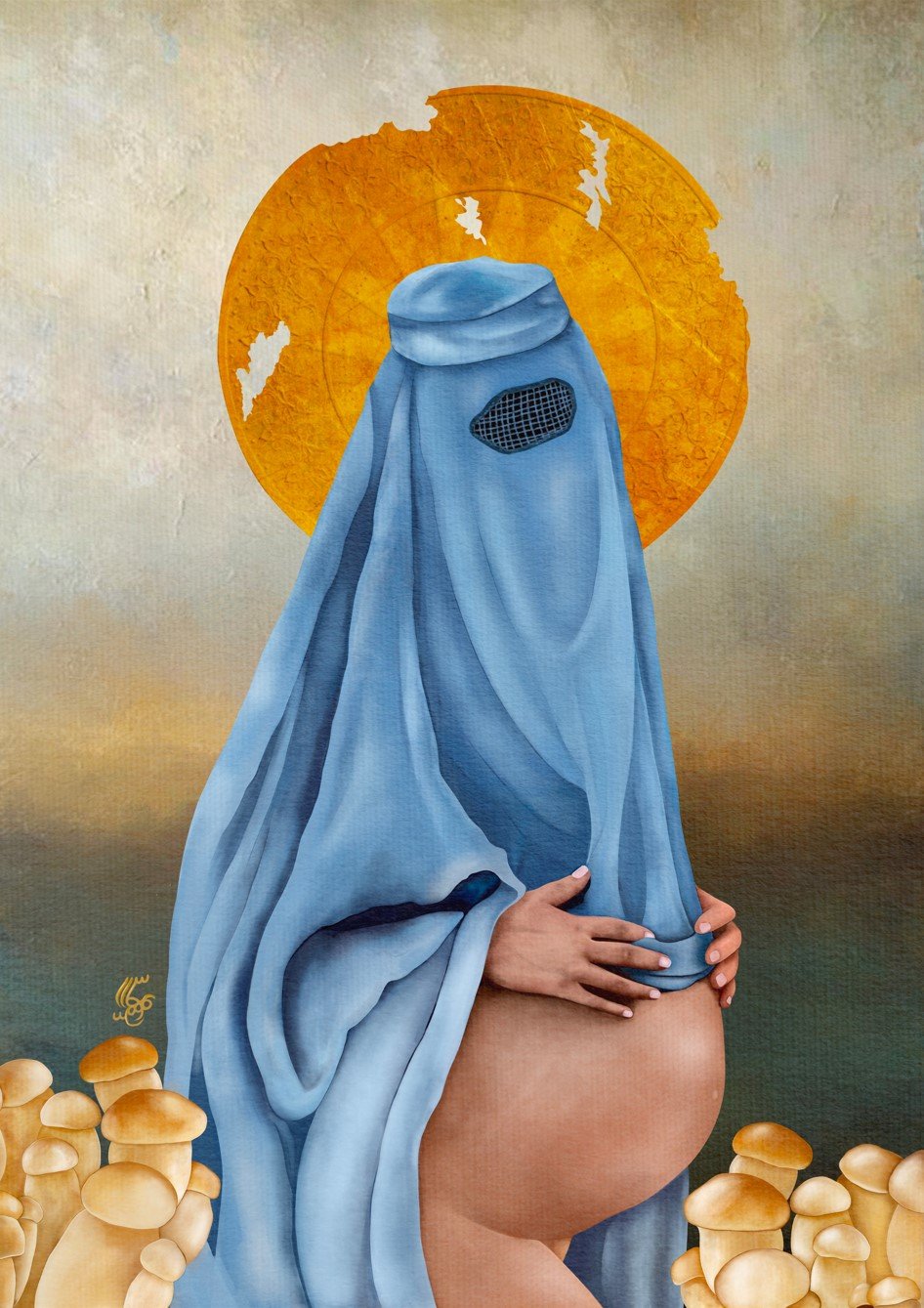BĀNBISHN
I am alive thanks to my fertilization, Bānbishn.
Taliban commanders have demanded communities turn over unmarried women to become "wives" for their fighters, The Wall Street Journal reported. In many newly conquered areas, the Taliban has reportedly imposed strict restrictions on women's movement, allowing them to venture out only with their male relatives. The Taliban has also made it compulsory to wear all-enveloping burqa for women. Usually made of heavy cloth, it is specifically designed to cover the wearer from head to toe. A netted fabric is placed near the eyes so that the woman inside can peer out through the meshing but nobody can see inside.
After conquering Rustaq district, a local Taliban leader reportedly asked all girls above 15 years and widows younger than 40 to get married to its fighters.Wearing a burqa means that they have accepted the Taliban’s government and they have given them the right to control women’s life as what is happening in Iran.
Many younger women in Kabul feel the same conflicting sense of despair and defiance as Iranian younger women.
Having to wear a burqa will be the least of Afghan women's concerns. Encouraged by the support, women started to ask for more rights within their families, demanding a voice, an education, a job or even political participation.But since there were virtually no programmes to teach men the importance of women's rights, a potential for conflict opened up. Men often only knew one answer to the new demands: violence.Afghanistan's women know this. And they know what is at stake now.In this Picture we can see the sanctity of being a woman who can give birth to a living creature. This woman is hidden behind a burqa which is the symbol of being controlled by someone else’s power. We can not even see her eyes which reflect her soul. We can not see what she is going through. Those mushrooms are symbols of the Taliban who see women as a factory to produce the new generation for them.
Bānbishn was the Middle Persian title of the Sasanian Queens of Iran. The full version of the title was bānbishnān bānbishn ("Queen of Queens"). I believe any woman can become Bānbishn of her life. The first step towards becoming Banbishn is knowing the woman's rights and position in the society. A woman without this knowledge will lose her respect in the family, the society and the whole world. Banbishn is a cultural project focusing on women's right and gender inequality.
I received my bachelor's degree in french literature at university of Tehran then obtained my master's degree from the same university as culture and languages of ancient Iran and continued my study in anthropology at EHESS in Paris.
I am an Iranian artist based in London and have held more than 25 group exhibitions of painting and workshops in Iran, London and Paris and have been honoured and received some national festival awards.
